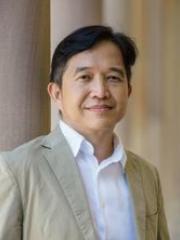Dr Noel Morada

Researcher biography
Dr Noel M. Morada is former Professor of Political Science at the University of the Philippines Diliman and was a Distinguished Visiting Professor at the School of Advanced International Studies (SAIS) at the Johns Hopkins University in Washington DC. In 2005, he was commissioned by the Canadian Embassy in Manila to undertake research on responses to R2P in Southeast Asia from which a R2P Roadmap in the region was published and has served as a guide to the work of the Centre. He has been engaging stakeholders in Southeast Asia as part of his work in the Centre and has conducted lectures and seminars on R2P for government officials, civil society groups, and academia in Cambodia, Indonesia, Malaysia, The Philippines, and Thailand. He is an advocate of a bottom-up approach in building awareness and constituency around R2P in the region, focusing on the importance of Pillar 1 (prevention) and Pillar 2 (capacity building) of the norm. He has also delivered lectures on atrocities prevention and participated in various seminars, conferences, and public forums in Australia and Southeast Asia, as well as in New York, Geneva, Johannesburg, Rio de Janeiro, and Costa Rica among others. He has also organised and delivered lectures in education and training seminars for diplomats in Africa (between 2011-2013). In 2018, he delivered lectures on R2P and atrocities prevention in training seminars in Bangkok in cooperation with Mahidol University's Institute for Human Rights and Peace Studies; and in Auschwitz, Poland under the Global Raphael Lemkin Seminar on Genocide Prevention organised by the Auschwitz Institute for Peace and Reconciliation.
Apart from his research and advocacy on R2P, he is also involved in regional security research and dialogue specifically dealing with terrorism, maritime security, and non-traditional security issues in Southeast Asia. He has also done research and publication on ASEAN external relations, the ASEAN Regional Forum and cooperative security in the Asia Pacific, as well as human security and human development in the region.
